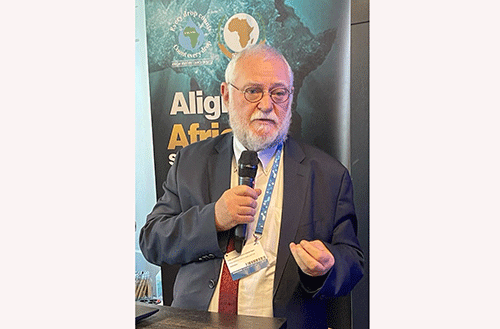Water minister Calle Schlettwein has urged participants at the Stockholm World Water Week, which came to an end yesterday, to fast-track the development of the water and sanitation agenda as any delay will hinder socio-economic development.
He said while addressing the conference in Sweden on Wednesday that water and sanitation are key enablers for achieving the sustainable development goals.
This has been underscored by such continental and global commitments as the 2008 Sharm El Sheikh declaration, the 2015 Ngor commitments, and the Sustainable Development Goals 2030.
“Some progress has been made towards the achievement of these continental and global water and sanitation goals, but much still needs to be done,” Schlettwein noted.
The Namibian politician added that they have been informed that there is still a significant financing gap of US$43 billion between what is required (US$69 billion) and what is currently available (US$16 billion).
The additional operational financing that would be required to maintain and run all the assets bought would face major shortages, in addition to the infrastructure construction costs.
Unsurprisingly, Schlettwein said, available information from the African Water and Sanitation Sector Monitoring and Reporting System (WASSMO) indicates significant challenges in translating the commitments into impact.
A key element underlying the progress reported on the implementation of the commitments is inadequate sector financing.
“Domestic allocations and national investments into the sector are reported as significantly lower than the agreed targets of the eThekwini PANAFCON and Ngor declarations (AUC, AMCOW, 2021),” he stated.
According to him, Official Development Assistance (ODA) constitutes a major extra budgetary financial resources’ inflow to the sector. But, owing to differences in two approaches among the development partners, the contribution of ODA to the pursuit of water and sanitation goals in Africa is not known with any degree of certainty.
Similarly, the true potential of the impact from the resources invested is not realised in part due to the absence of institutionalised mechanisms to streamline efforts.
“Development partners have different sets of conditionalities attached to either disbursement or procurement, some of which are difficult for recipient countries to fulfil,” he said, adding that the result is only one, namely underperformance or even non-performance.
Many organisations are already providing a lot of technical and financial support to the water and sanitation sector in Africa.


